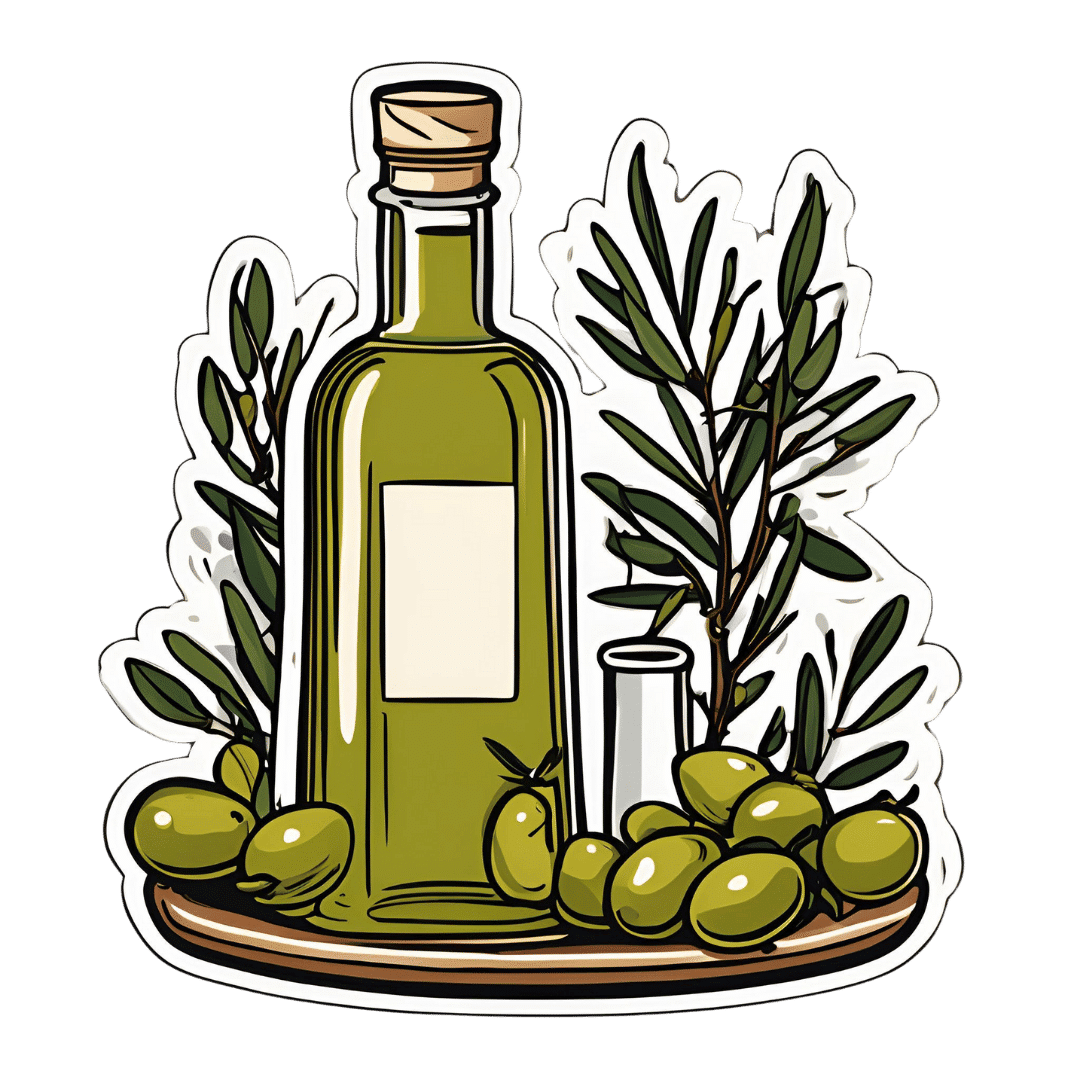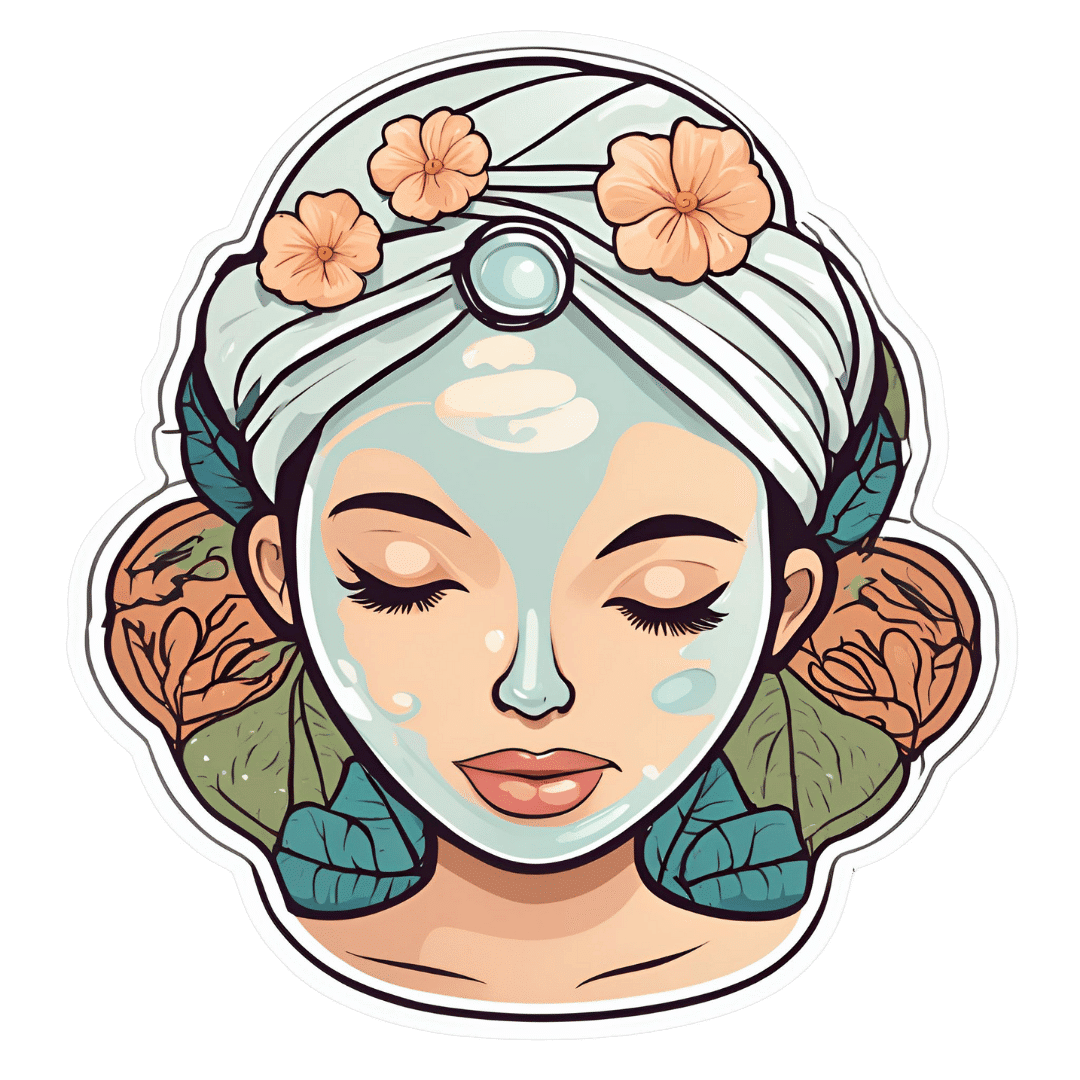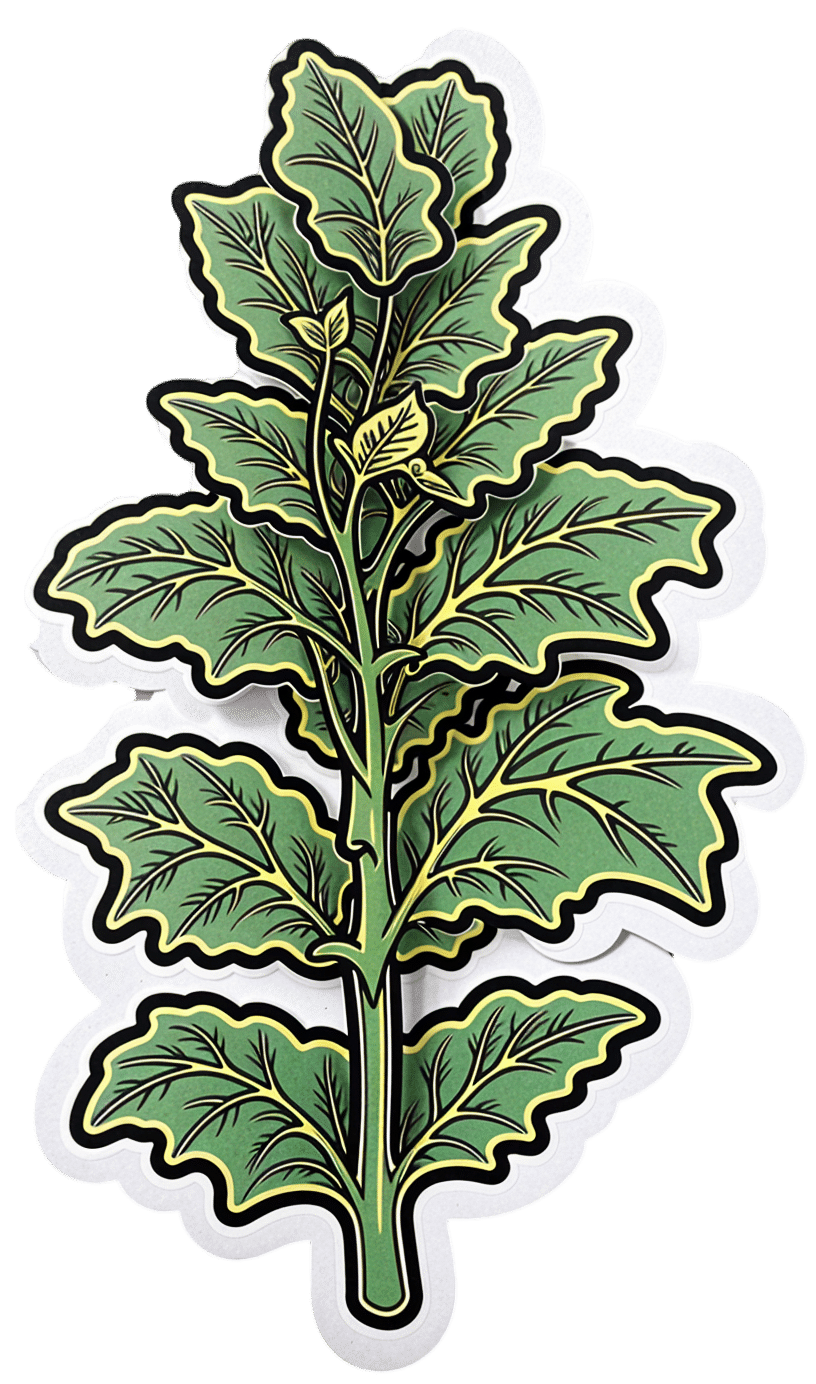
Ideal Blood Pressure Numbers Explained
10almonds is reader-supported. We may, at no cost to you, receive a portion of sales if you purchase a product through a link in this article.
It’s Q&A Day at 10almonds!
Have a question or a request? You can always hit “reply” to any of our emails, or use the feedback widget at the bottom!
In cases where we’ve already covered something, we might link to what we wrote before, but will always be happy to revisit any of our topics again in the future too—there’s always more to say!
As ever: if the question/request can be answered briefly, we’ll do it here in our Q&A Thursday edition. If not, we’ll make a main feature of it shortly afterwards!
So, no question/request too big or small
❝Maybe I missed it but the study on blood pressure did it say what the 2 numbers should read ideally?❞
We linked it at the top of the article rather than including it inline, as we were short on space (and there was a chart rather than a “these two numbers” quick answer), but we have a little more space today, so:
| Category | Systolic (mm Hg) | Diastolic (mm Hg) | |
| Normal | < 120 | AND | < 80 |
| Elevated | 120 – 129 | AND | < 80 |
| Stage 1 – High Blood Pressure | 130 – 139 | OR | 80 – 89 |
| Stage 2 – High Blood Pressure | 140 or higher | OR | 90 or higher |
| Hypertensive Crisis | Above 180 | AND/OR | Above 120 |
To oversimplify for a “these two numbers” answer, under 120/80 is generally considered good, unless it is under 90/60, in which case that becomes hypotension.
Hypotension, the blood pressure being too low, means your organs may not get enough oxygen and if they don’t, they will start shutting down.
To give you an idea how serious this, this is the closed-circuit equivalent of the hypovolemic shock that occurs when someone is bleeding out onto the floor. Technically, bleeding to death also results in low blood pressure, of course, hence the similarity.
So: just a little under 120/80 is great.
Don’t Forget…
Did you arrive here from our newsletter? Don’t forget to return to the email to continue learning!
Recommended
Learn to Age Gracefully
Join the 98k+ American women taking control of their health & aging with our 100% free (and fun!) daily emails:
-
Are Supplements Worth Taking?
10almonds is reader-supported. We may, at no cost to you, receive a portion of sales if you purchase a product through a link in this article.
It’s Q&A Day at 10almonds!
Have a question or a request? We love to hear from you!
In cases where we’ve already covered something, we might link to what we wrote before, but will always be happy to revisit any of our topics again in the future too—there’s always more to say!
As ever: if the question/request can be answered briefly, we’ll do it here in our Q&A Thursday edition. If not, we’ll make a main feature of it shortly afterwards!
So, no question/request too big or small 😎
❝There seems to be a lot of suggestions to take supplements for every thing, from your head to your toes. I know it’s up to the individual but what are the facts or stats to support taking them versus not?❞
Short answer:
- supplementary vitamins and minerals are probably neither needed nor beneficial for most (more on this later) people, with the exception of vitamin D which most people over a certain age need unless they are white and getting a lot of sun.
- other kinds of supplement can be very beneficial or useless, depending on what they are, of course, and also your own personal physiology.
With regard to vitamins and minerals, in most cases they should be covered by a healthy balanced diet, and the bioavailability is usually better from food anyway (bearing in mind, we say vitamin such-and-such, or name an elemental mineral, but there are usually multiple, often many, forms of each—and supplements will usually use whatever is cheapest to produce and most chemically stable).
However! It is also quite common for food to be grown in whatever way is cheapest and produces the greatest visible yield, rather than for micronutrient coverage.
This goes for most if not all plants, and it goes extra for animals (because of the greater costs and inefficiencies involved in rearing animals).
We wrote about this a while back in a mythbusting edition of 10almonds, covering:
- Food is less nutritious now than it used to be: True or False?
- Supplements aren’t absorbed properly and thus are a waste of money: True or False?
- We can get everything we need from our diet: True or False?
You can read the answers and explanations, and see the science that we presented, here:
Do We Need Supplements, And Do They Work?
You may be wondering: what was that about “most (more on this later) people”?
Sometimes someone will have a nutrient deficiency that can’t be easily remedied with diet. Often this occurs when their body:
- has trouble absorbing that nutrient, or
- does something inconvenient with it that makes a lot of it unusable when it gets it.
…which is why calcium, iron, vitamin B12, and vitamin D are quite common supplements to get prescribed by doctors after a certain age.
Still, it’s best to try getting things from one’s diet first all of all, of course.
Things we can’t (reasonably) get from food
This is another category entirely. There are many supplements that are convenient forms of things readily found in a lot of food, such as vitamins and minerals, or phytochemicals like quercetin, fisetin, and lycopene (to name just a few of very many).
Then there are things not readily found in food, or at least, not in food that’s readily available in supermarkets.
For example, if you go to your local supermarket and ask where the mimosa is, they’ll try to sell you a cocktail mix instead of the roots, bark, or leaves of a tropical tree. It is also unlikely they’ll stock lion’s mane mushroom, or reishi.
If perchance you do get the chance to acquire fresh lion’s mane mushroom, by the way, give it a try! It’s delicious shallow-fried in a little olive oil with black pepper and garlic.
In short, this last category, the things most of us can’t reasonably get from food without going far out of our way, are the kind of thing whereby supplements actually can be helpful.
And yet, still, not every supplement has evidence to support the claims made by its sellers, so it’s good to do your research beforehand. We do that on Mondays, with our “Research Review Monday” editions, of which you can find in our searchable research review archive ← we also review some drugs that can’t be classified as supplements, but mostly, it’s supplements.
Take care!
Share This Post
-
All About Olive Oil
10almonds is reader-supported. We may, at no cost to you, receive a portion of sales if you purchase a product through a link in this article.
It’s Q&A Day at 10almonds!
Have a question or a request? We love to hear from you!
In cases where we’ve already covered something, we might link to what we wrote before, but will always be happy to revisit any of our topics again in the future too—there’s always more to say!
As ever: if the question/request can be answered briefly, we’ll do it here in our Q&A Thursday edition. If not, we’ll make a main feature of it shortly afterwards!
So, no question/request too big or small 😎
❝Skip the video & tell more about olive oil please.❞
We love requests!
We can’t really do anti-requests (e.g. “skip the video”) because for every one person who doesn’t care for one particular element of the newsletter, there will be thousands who do—and indeed, the video segment is a popular one, so it will certainly remain.
However! Let us reassure you that you personally are not obliged to watch the video if you don’t want to 🙂 In fact, our general hope with 10almonds is that there will be at least one feature that is of value to each reader, each day.
Writer’s note: I’m a very bookish person, and in honesty do not love videos personally either. You know what I do love though? Olive oil. So let’s get onto that 😎
Why olive oil?
Let’s quickly address the taste/culinary side of things first, and then spend more time on the health aspects. Olive oil’s strong punchy flavor (as oils go, anyway) makes it a big winner with those of us who love strong punchy flavors. However, it does mean that it can overwhelm some more delicate dishes if one isn’t careful, meaning that it’s not perfect for everything all the time.
Healthwise, olive oil is one of the healthiest oils around, along with avocado oil. In fact, we compared them previously:
Avocado Oil vs Olive Oil – Which is Healthier?
…and it’s worth noting that their (excellent) lipids profiles are very similar, meaning that the main factor between them is that olive oil usually retains vitamins that avocado oil doesn’t.
Meanwhile, another popular contender for “healthy oil” is coconut oil, but this doesn’t have nearly as unambiguously good a lipids profile, because of coconut oil’s high saturated fat content—though lauric acid can have a cardioprotective effect, so the jury is out on that one:
Olive Oil vs Coconut Oil – Which is Healthier?
Interestingly, this article from The Conversation considered seed oils (canola, sunflower, sesame) to be next-best options:
I can’t afford olive oil. What else can I use?
…but it’s worth noting that the way those seed oils are made varies a lot from country to country, and can affect their health impact considerably.
It’s not just about the fats
Olives, especially green olives with their stronger more pungent flavor, are rich in assorted polyphenols that have many health-giving properties:
Black Olives vs Green Olives – Which is Healthier
…and olive oil is almost always made from green olives. Note that while we picked black olives in the above comparison, that’s mainly because green olives are “cured” for longer and thus are much higher in sodium… Which, guess what, isn’t in olive oil, so with olive oil we can enjoy all of the polyphenols with almost none of the sodium!
Let’s talk virginity
When it comes to olive oil, definitely not everything labelled as olive oil in the supermarket is of the same quality. Mostly, however, it’s not whether it’s “extra virgin” (i.e. the oil from the first mechanical pressing) or not that actually makes the biggest health difference, so much as that olive oils are often adulterated with other cheaper oils, so it’s important to check labels for that, even when they say “extra virgin”, in case it’s something like:
a blend of
EXTRA VIRGIN OLIVE OIL
and other oilsWe talk about this, and the various different levels of quality of olive oil and how you can tell them apart for yourself in the supermarket (and be wise to the ways they may try to trick you), here:
What to enjoy it with?
Olive oil is the single largest source of fat in the Mediterranean diet, and by that we mean not just “food that is eaten in the Mediterranean”, but rather, the well-defined dietary approach that has for a long time now been considered “the gold standard” of what a healthy diet looks like, scientifically. You can read more about what is and isn’t included in the definition, here:
Mediterranean Diet: What Is It Good For? ← what isn’t it good for!
Enjoy!
Share This Post
-
Daily, Weekly, Monthly: Habits Against Aging
10almonds is reader-supported. We may, at no cost to you, receive a portion of sales if you purchase a product through a link in this article.
Dr. Anil Rajani has advice on restoring/retaining youthfulness. Two out of three of the sections are on skincare specifically, which may seem a vanity, but it’s also worth remembering that our skin is a very large and significant organ, and makes a big difference for the rest of our physical health, as well as our mental health. So, it’s worthwhile to look after it:
The recommendations
Daily: meditation practice
Meditation reduces stress, which reduction in turn protects telomere length, slowing the overall aging process in every living cell of the body.
Weekly: skincare basics
Dr. Rajani recommends a combination of retinol and glycolic acid. The former to accelerate cell turnover, stimulate collagen production, and reduce wrinkles; the latter, to exfoliate dead cells, allowing the retinol to do its job more effectively.
We at 10almonds would like to add: wearing sunscreen with SPF50 is a very good thing to do on any day that your phone’s weather app says the UV index is “moderate” or higher.
Monthly: skincare extras
Here are the real luxuries; spa visits, microneedling (stimulates collagen production), and non-ablative laser therapy. He recommends creating a home spa if possible for monthly skincare treatments, investing in high-quality devices for long-term benefits.
For more on all of these things, enjoy:
Click Here If The Embedded Video Doesn’t Load Automatically!
Want to learn more?
You might also like to read:
- Age & Aging: What Can (And Can’t) We Do About It?
- No-Frills, Evidence-Based Mindfulness
- The Evidence-Based Skincare That Beats Product-Specific Hype
Take care!
Share This Post
Related Posts
-
Seasonal Affective Disorder (Beyond Sunlight!)
10almonds is reader-supported. We may, at no cost to you, receive a portion of sales if you purchase a product through a link in this article.
For those of us in the Northern Hemisphere, the time of increasing darkness is upon us again. Depending on our latitude, the sun barely rises before it skitters off again. And depending on other factors of our geography, we might not get much sun during that time (writer’s example: the ancient bog from which I write has been surrounded by fog for two weeks now).
So, what to do about it?
Firstly, we can make the most of whatever sun we do get (especially in the morning, if possible), and we can of course make some use of artificial sunlight. To save doubling up, we’ll link to what we previously wrote about optimizing both of those things:
‘Tis To Season To Be SAD-Savvy
More ways to get serotonin
Sunlight, of course, triggers our bodies to make serotonin, and hence we often make less of it during winter. But, there are other ways to get serotonin too, and one of the best ways is spending time in nature. Yes, even if the weather is gloomy, provided there are still visible green things and you are seeing them, it will promote serotonin production.
Of course, it may not be the season for picnics, but a morning walk through a local park or other green space is ideal.
On which note, gardening remains a good activity. Not a lot of people do so much gardening after a certain point in the year, but in one way, it’s more important than ever to get some soil under your fingernails:
There are bacteria in soil (specifically: Mycobacterium vaccae) that work similarly to antidepressants.
When something is described as having an effect similar to antidepressants, it’s usually hyperbole. In this case, it’s medicine, and literally works directly on the serotonergic system (as do many, but not all, antidepressants).
See also: Antidepressants: Personalization Is Key!
While many antidepressants are selective serotonin uptake inhibitors (i.e., they slow the rate at which your brain loses serotonin), Mycobacterium vaccae increases the rate at which you produce serotonin. So, you feel happier, more relaxed, while also feeling more energized.
^this one’s a mouse study, but we’re including it because it covers exactly how it works in the brain, which is something that the ethics board wouldn’t let them do on humans, due to the need for slicing the brains up for examination.
As to how to benefit: touching soil will get you “infected” by the bacteria, yes, even if you wash your hands later. Growing food in the soil and eating the good (including if you wash and cook it) is even better.
Boost the other “happiness chemicals”
Serotonin is just one “happiness hormone”, other feel-good neurotransmitters that are just as important include dopamine and oxytocin.
Dopamine is most associated with being the “reward chemical”, so it pays to do things that you find rewarding. If you’re stuck for ideas, engaging in small acts of kindness is a sure-fire way to get dopamine flowing and lift your own mood as well as theirs.
See also: 10 Ways To Naturally Boost Dopamine
Oxytocin, meanwhile is the “cuddle chemical”, and can be triggered even if you have nobody to cuddle*. If you do, by the way, make it at least 20–30 seconds, as that’s generally how long it takes to get oxytocin flowing.
*Vividly imagining it has much the same effect, since the brain can’t tell the difference. Alternatively, looking at pictures/videos (your choice) of small cute animals tends to work for most people also.
For more on these things, check out: Neurotransmitter Cheatsheet
Take care!
Don’t Forget…
Did you arrive here from our newsletter? Don’t forget to return to the email to continue learning!
Learn to Age Gracefully
Join the 98k+ American women taking control of their health & aging with our 100% free (and fun!) daily emails:
-
From Lupus To Arthritis: New Developments
10almonds is reader-supported. We may, at no cost to you, receive a portion of sales if you purchase a product through a link in this article.
This week’s health news round-up highlights some things that are getting better, and some things that are getting worse, and how to be on the right side of both:
New hope for lupus sufferers
Lupus is currently treated mostly with lifelong medications to suppress the immune system, which is not only inconvenient, but also can leave people more open to infectious diseases. The latest development uses CAR T-cell technology (as has been used in cancer treatment for a while) to genetically modify cells to enable the body’s own immune system to behave properly:
Read in full: Exciting new lupus treatment could end need for lifelong medication
Related: How to Prevent (Or Reduce The Severity Of) Inflammatory Diseases
It’s in the hips
There are a lot of different kinds of hip replacements, and those with either delta ceramic or oxidised zirconium head with a highly cross-linked polyethylene liner/cup have the lowest risk of need for revision in the 15 years after surgery. This is important, because obviously, once it’s in there, you want it to be able to stay in there and not have to be touched again any time soon:
Read in full: Study identifies hip implant materials with the lowest risk of needing revision
Related: Nobody Likes Surgery, But Here’s How To Make It Much Less Bad
Sooner is better than later
Often, people won’t know about an unwanted pregnancy in the first six weeks, but for those who are able to catch it early, Very Early Medical Abortion (VEMA) offers a safe an effective way of doing so, with success rate being linked to earliness of intervention:
Read in full: Very early medication abortion is effective and safe, study finds
Related: What Might A Second Trump Presidency Look Like for Health Care?
Increased infectious disease risks from cattle farms
Many serious-to-humans infectious diseases enter the human population via the animal food chain, and in this case, bird flu becoming more rampant amongst cows is starting to pose a clear threat to humans, so this is definitely something to be aware of:
Read in full: Bird flu infects 1 in 14 dairy workers exposed; CDC urges better protections
Related: With Only Gloves To Protect Them, Farmworkers Say They Tend Sick Cows Amid Bird Flu
Herald of woe
Gut health affects most of the rest of health, and there are a lot of links between gut and bone health. In this case, an association has been found between certain changes in the gut microbiome, and subsequent onset of rheumatoid arthritis:
Read in full: Changes in gut microbiome could signal onset of rheumatoid arthritis
Related: Stop Sabotaging Your Gut
Take care!
Don’t Forget…
Did you arrive here from our newsletter? Don’t forget to return to the email to continue learning!
Learn to Age Gracefully
Join the 98k+ American women taking control of their health & aging with our 100% free (and fun!) daily emails:
-
Lemon Balm For Stressful Times And More
10almonds is reader-supported. We may, at no cost to you, receive a portion of sales if you purchase a product through a link in this article.
Balm For The Mind: In More Ways Than One!
Lemon balm(Melissa officinalis) is quite unrelated to lemons, and is actually a closer relative to mint. It does have a lemony fragrance, though!
You’ll find it in a lot of relaxing/sleepy preparations, so…
What does the science say?
Relaxation
Lemon balm has indeed been found to be a potent anti-stress herb. Laboratories that need to test anything to do with stress generally create that stress in one of two main ways:
- If it’s not humans: a forced swimming test that’s a lot like waterboarding
- If it is humans: cognitive tests completed under time-pressure while multitasking
Consequently, studies that have set out to examine lemon balm’s anti-stress potential in humans, have often ended up also highlighting its potential as a cognitive enhancer, like this one in which…
❝Both active lemon balm treatments were generally associated with improvements in mood and/or cognitive performance❞
~ Dr. Anastasia Ossoukhova et al.
Read in full: Anti-Stress Effects of Lemon Balm-Containing Foods
And this one, which found…
❝The results showed that the 600-mg dose of Melissa ameliorated the negative mood effects of the DISS, with significantly increased self-ratings of calmness and reduced self-ratings of alertness.
In addition, a significant increase in the speed of mathematical processing, with no reduction in accuracy, was observed after ingestion of the 300-mg dose.❞
The appropriately named “DISS” is the Defined Intensity Stress Simulation we talked about.
Sleep
There’s a lot less research for lemon balm’s properties in this regard than for stress/anxiety, and it’s probably because sleep studies are much more expensive than stress studies.
It’s not for a lack of popular academic interest—for example, typing “Melissa officinalis” into PubMed (the vast library of studies we often cite from) autosuggests “Melissa officinalis sleep”. But alas, autosuggestions do not Randomized Controlled Trials make.
There are some, but they’re often small, old, and combined with other things, like this one:
This is interesting, because generally speaking there is little to no evidence that valerian actually helps sleep, so if this mixture worked, we might reasonably assume it was because of the lemon balm—but there’s an outside chance it could be that it only works in the presence of valerian (unlikely, but in science we must consider all possibilities).
Beyond that, we just have meta-reviews to work from, like this one that noted:
❝M. officinalis contains several phytochemicals such as phenolic acids, flavonoids, terpenoids, and many others at the basis of its pharmacological activities. Indeed, the plant can have antioxidant, anti-inflammatory, antispasmodic, antimicrobial, neuroprotective, nephroprotective, antinociceptive effects.
Given its consolidated use, M. officinalis has also been experimented with clinical settings, demonstrating interesting properties against different human diseases, such as anxiety, sleeping difficulties, palpitation, hypertension, depression, dementia, infantile colic, bruxism, metabolic problems, Alzheimer’s disease, and sexual disorders. ❞
You see why we don’t try to cover everything here, by the way!
But if you want to read this one in full, you can, at:
An Updated Review on The Properties of Melissa officinalis L.: Not Exclusively Anti-anxiety
Is it safe?
Lemon balm is generally recognized as safe, and/but please check with your doctor/pharmacist in case of any contraindications due to medicines you may be on or conditions you may have.
Want to try some?
We don’t sell it, but here for your convenience is an example product on Amazon
Want to know your other options?
You might like our previous main features:
What Teas To Drink Before Bed (By Science!)
and
Safe Effective Sleep Aids For Seniors
Enjoy!
Don’t Forget…
Did you arrive here from our newsletter? Don’t forget to return to the email to continue learning!
Learn to Age Gracefully
Join the 98k+ American women taking control of their health & aging with our 100% free (and fun!) daily emails:






